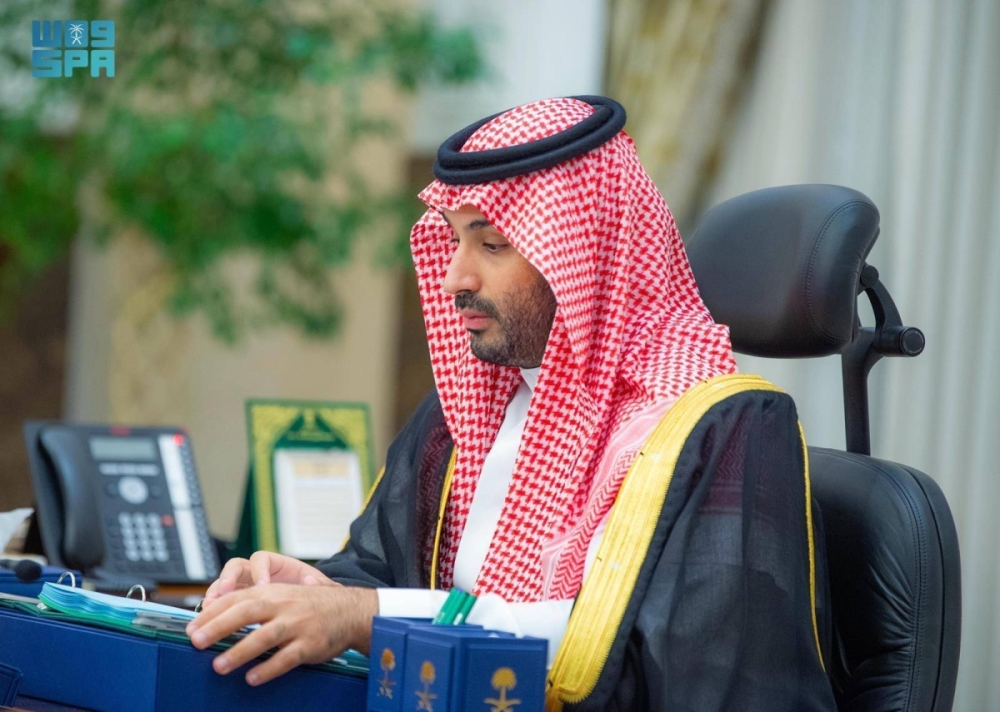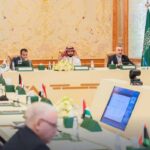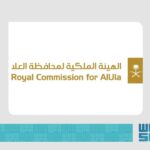

The Cabinet, during its session held on Tuesday evening under the chairmanship of the Crown Prince, Prime Minister, in NEOM, approved the Crafts and Handicrafts System.
At the beginning of the session, the Crown Prince briefed the Cabinet on the contents of his telephone communications with the President of the United Arab Emirates, the President of the Republic of Korea, and the Prime Minister of the Italian Republic, as well as on the content of the message he received from the President of the Republic of Sierra Leone.
In the context of following regional and international developments, the Council strongly condemned the statements of the Prime Minister of the Israeli occupation government regarding the so-called “Greater Israel Vision,” and the complete rejection of the settlement and expansionist ideas and projects of the occupation authorities. It affirmed the historical and legal right of the brotherly Palestinian people to establish their independent, sovereign state on their lands based on relevant international laws.
It was explained in a statement following the session that the Council strongly condemned the approval by the Israeli occupation authorities for the construction of settlements in the vicinity of occupied Jerusalem, renewing the call to the international community, especially the permanent member states of the Security Council, to take immediate measures to oblige the occupation authorities to stop their crimes against the Palestinian people and their occupied land, and to comply with UN resolutions.
The Cabinet affirmed the support of the Kingdom of Saudi Arabia for all diplomatic efforts aimed at resolving the (Russian-Ukrainian) crisis through peaceful means and achieving peace between the two countries. In this context, it expressed its welcome for the two summits held by the President of the United States of America with the President of the Russian Federation and with the President of Ukraine and leaders of European countries.
On the occasion of “World Humanitarian Day,” the Council expressed its pride in the blessed journey of the Kingdom of Saudi Arabia in this field since its establishment until the present era, supporting humanity and its development with steadfast principles derived from the noble Islamic religion and noble values; which has cemented its position among the largest donor countries in the world.
On the domestic front, the Cabinet reviewed, with the approaching start of the new academic year, the achievements made in the education sector, which included curriculum development, enhancing the professional level of teachers, integrating artificial intelligence, expanding technical training, discovering and supporting talented individuals, and providing educational environments that stimulate creativity and innovation; so that the Kingdom remains always at the forefront and in leadership, wishing success to male and female students in various educational stages and tracks.
The Cabinet also reviewed a number of general items on its agenda, including annual reports of the General Authority for Defense Development, the National Risks Council, the Saudi Center for Economic Business, and the Global Tourism Academy. The Council took the necessary measures regarding those items.
Approvals
Approval of promotions and transfers at grades (15) and (14), as follows:
- Promotion of Abdullah bin A’id bin Abdullah Al-Hazmi to the position of (Senior Business Advisor) at grade (15) at Imam Muhammad bin Saud Islamic University.
- Promotion of Khalid bin Abdulrahman bin Ali Al-Jreis to the position of (Business Advisor) at grade (14) at the Ministry of Energy.
- Transfer of Khalid bin Zaid bin Saud Al-Tamimi from the Experts Bureau of the Council of Ministers, and his promotion to the position of (Business Advisor) at grade (14) at the General Secretariat of the Council of Ministers.
The Cabinet reviewed the items on its agenda, including items studied with the participation of the Shura Council. It also reviewed the conclusions reached by the Council of Political and Security Affairs, the Council of Economic and Development Affairs, the General Committee of the Council of Ministers, and the Experts Bureau of the Council of Ministers regarding them. The Council concluded the following:
First: Authorizing the Minister of Sports – or his representative – to discuss with the Spanish side regarding a draft Memorandum of Understanding between the Ministry of Sports in Saudi Arabia and the Supreme Council for Sports in the Kingdom of Spain for





